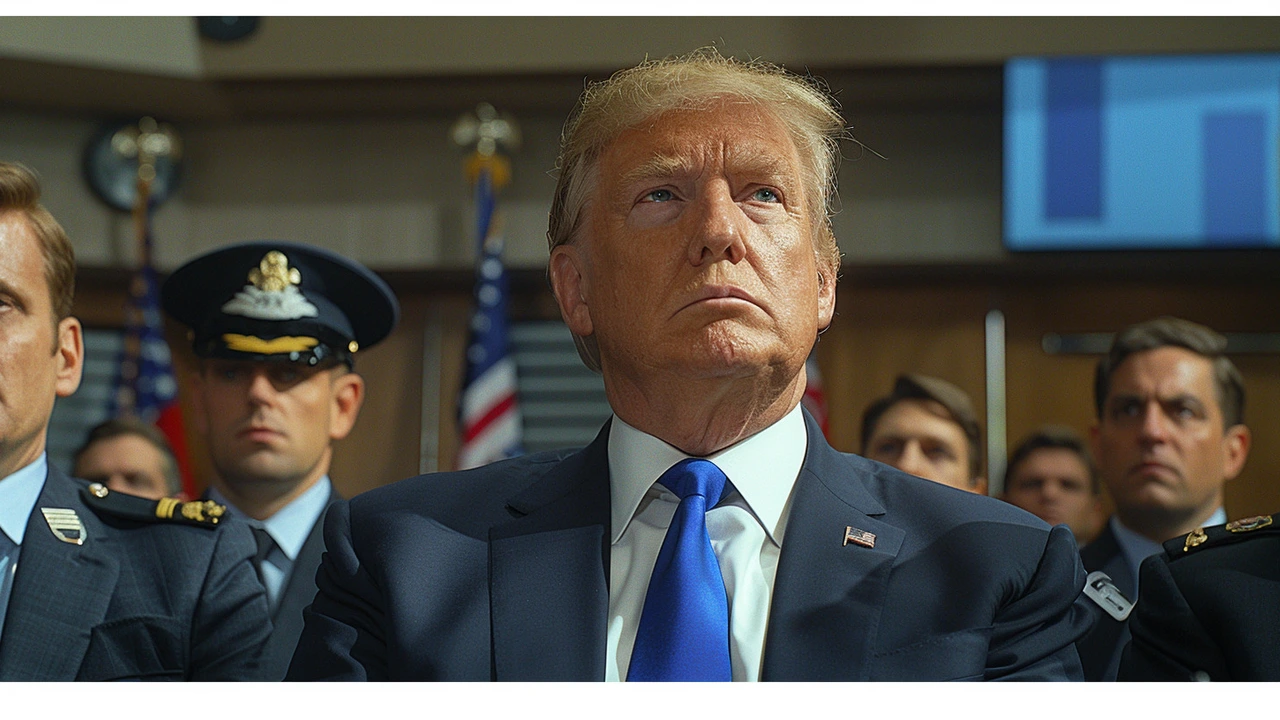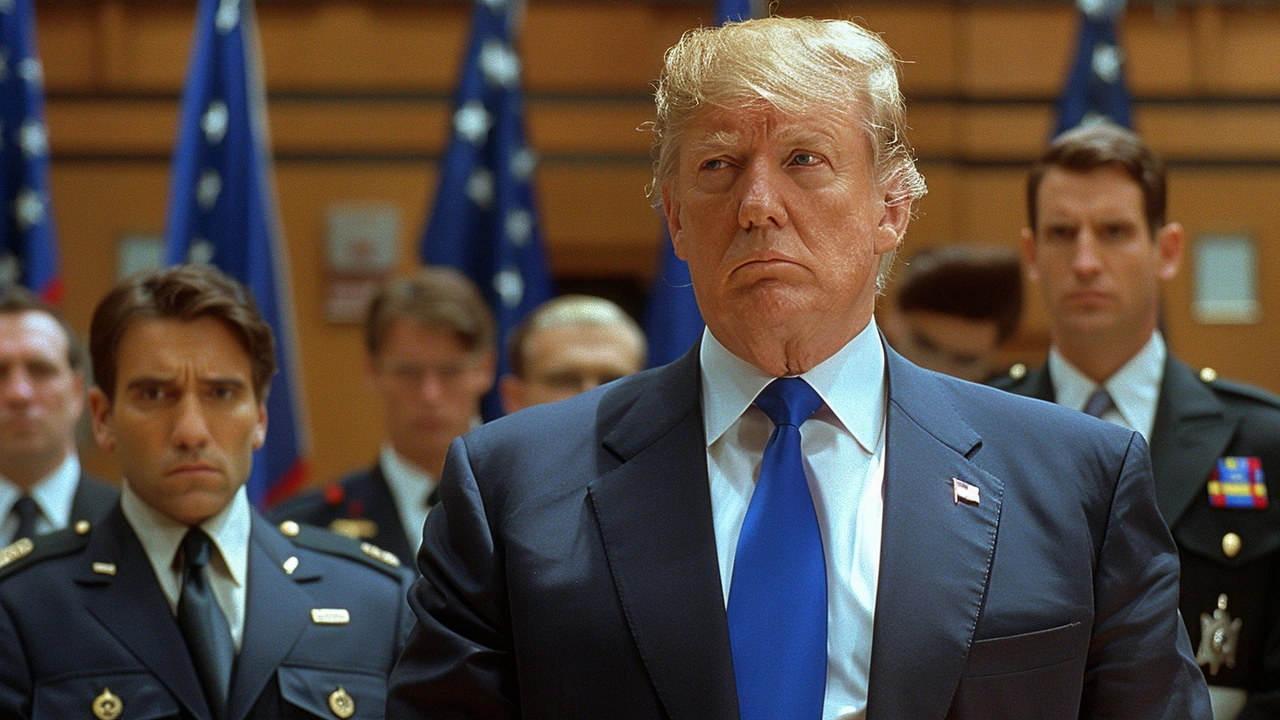
Donald Trump Found Guilty on All 34 Counts in Landmark Hush Money Trial
In an unprecedented turn of events, former U.S. President Donald J. Trump has been convicted on all 34 counts of falsifying business records in the first degree, connected to a hush money scheme. This historic conviction, reached by a Manhattan jury, marks a significant moment in American legal and political history. It makes Trump the first former president to be criminally charged and subsequently convicted. The case rooted itself in the payments made to Michael Cohen, Trump's attorney, as reimbursements for a $130,000 hush money payment to adult film star Stormy Daniels during the heated 2016 presidential campaign.
The jury's decision on Thursday places Trump in a precarious position, with the spectrum of penalties ranging from probation to possibly four years in prison. The sentencing, scheduled for July 11, could have broader implications, given its proximity to key political events such as the Republican National Convention and a scheduled presidential debate between Trump and President Joe Biden. The timing undeniably adds an extra layer of tension to an already charged political atmosphere.
Boston University experts, Tammy Vigil and Jed Shugerman, have weighed in on the possible ramifications of this verdict. Vigil suggests that the conviction's awkward timing could impact the 2024 presidential race, possibly influencing the Republican primaries and shaping voter opinions. Shugerman, meanwhile, considers this case as part of a larger narrative of legal accountability. Despite deeming the case not legally robust, he views the conviction as a form of legal karma reflecting Trump's numerous alleged misdeeds, ranging from the January 6 Capitol insurrection to interference in Georgia's election and the handling of classified documents at Mar-a-Lago.
The Case’s Centerpiece: Hush Money Payments
The central issue of this trial was the hush money payments made during the 2016 presidential campaign. Stormy Daniels, an adult film star, claimed to have had an affair with Trump in 2006 and was paid $130,000 by Michael Cohen, Trump's then-attorney, to remain silent. Prosecutors argued that these payments were improperly classified as legal expenses in Trump's business records, constituting falsification. The legal argument hinged on demonstrating that Trump authorized these payments to influence the election, aiming to prevent damaging information from surfacing.
Cohen’s testimony proved to be critical. Having pleaded guilty to campaign finance violations himself, Cohen's detailed recounting of the events portrayed a damning picture of Trump's awareness and involvement in the scheme. The court's acceptance of Cohen's testimony underscored the gravity of the charges despite the defense team's vigorous attempts to discredit him.
Implications for Trump's Political Aspirations
The conviction undeniably shakes the foundation of Trump’s political aspirations. As he gears up for the 2024 presidential campaign, the legal challenges he faces have already begun to cloud his prospects. Political analysts suggest that this conviction could divide the Republican base. While some loyalists might view it as yet another politically motivated attack on their leader, others might question the viability of backing a candidate embroiled in multiple legal battles. Vigil’s insights highlight the delicate balancing act for Republican leaders as they navigate supporting Trump without alienating voters who may prefer a less controversial candidate.
Moreover, the July 11 sentencing date places a substantial spotlight on the Republican National Convention and the initial presidential debate between Trump and Biden. The political theater surrounding these events will undoubtedly be supersized by the impending legal pronouncements, adding a unique dynamic to the electoral process.
Legal Landscape and Broader Implications
Jed Shugerman’s commentary provides a lens through which to understand this trial within the broader landscape of Trump’s legal woes. This case is only one among the multiple legal battles Trump is waging. The charges stemming from the January 6 insurrection, allegations of election interference in Georgia, and issues with classified documents at Mar-a-Lago each carry profound implications for the former president. Shugerman interprets this trial and its outcome as pivotal not just legally but as a signal of accountability relevant to Trump’s extensive history of alleged legal infractions.
It’s important to recognize that while this particular case pertained to falsifying business records, the overarching themes of accountability and trust in leadership are deeply interwoven. The narrative that emerges from this case further complicates Trump's public image, which has been a mixture of defiance, resilience, and controversy.
Public Reaction and National Conversation
Public reaction to Trump's conviction has been predictably polarized. Supporters have castigated the verdict as a witch hunt, reflecting ongoing themes of political persecution. Cornered within an echo chamber, these supporters hold fast to the narrative of Trump’s victimization. On the other hand, Trump's detractors see the conviction as an overdue moment of justice. They believe it demonstrates that no one is above the law, reinforcing democratic values and the principle of accountability.
The national conversation is undeniably impacted. Political commentators and news analysts are abuzz, dissecting the ramifications of Trump's legal troubles on the Republican Party's future and the broader political landscape. This case has thrust the topic of legal integrity and the role of personal conduct in leadership into the limelight, prompting debates that extend well beyond Trump's individual circumstances.

Conclusion: A Defining Moment in U.S. Politics
As the dust begins to settle on this landmark case, the implications resonate far and wide. Donald J. Trump's conviction for falsifying business records amid a hush money scheme has set a historical precedent, highlighting a moment of profound consequence in U.S. politics. With the looming sentencing and the upcoming 2024 presidential election, the ripples of this verdict will undoubtedly influence voters, lawmakers, and the broader national discourse.
The intricate blend of legal, political, and social elements at play underscores the complexity of this case. Trump's unique role as a former president under criminal conviction while also campaigning for future presidency adds layers to the narrative. As observers and citizens alike, we're left to contemplate the broader questions of leadership, accountability, and the continuing evolution of American democracy.
Write a comment